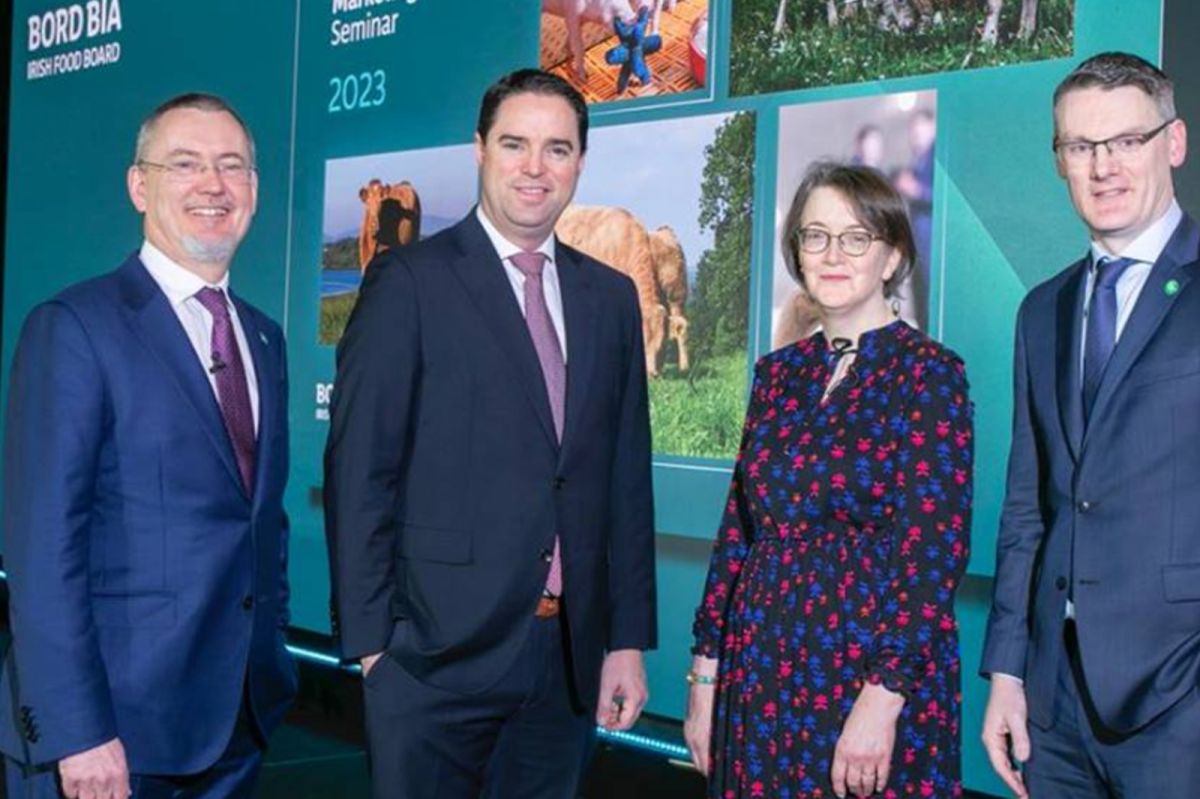Sustainable sourcing remains a key concern for global meat buyers

CEO Bord Bia, Jim O’Toole; Minister of State at the Department of Agriculture, Food and the Marine, Martin Heydon; assistant secretary general, Department of Agriculture, Food and the Marine, Sinéad McPhillips; and director, Meat, Food and Beverages at Bord Bia, John Murray.
In relation to the sustainable sourcing of meat, Bord Bia chief executive, Jim O’Toole, explained the need to remain focused on the long-term sustainability expectations of consumers and global meat buyers: “Ireland must continue to build on its key attributes as a meat supplier, focusing on sustainability, quality and safety. This reputation has been built up over many years and gives us a distinct competitive advantage in our export markets. However, it is critical that farm sustainability keeps pace with the sourcing needs of our global retail and foodservice customers.” He said through the Origin Green programme, Bord Bia is committed to supporting farmers and producers to meet these needs, and the seminar heard the Origin Green programme is working in collaboration with Teagasc and the Irish Cattle and Beef Federation to support farmers in meeting agriculture’s obligations under the Climate Action Plan.
Guest speaker Gavin Hodgson, who is director of Agriculture, Horticulture and Aquaculture with Sainsbury’s, also spoke about its commitment to sustainable sourcing. “Sustainability is incredibly important to our customers and us, and farm level investment is a key first step towards ensuring we are able to deliver high quality, sustainable products to our customers today and in the future.” And, noting that sustainability is likely to return to the top of the agenda among governments this year, Gira’s Rupert Claxton said: “The disruption of the Ukraine war, and resultant inflationary impact of high food and energy prices, led governments to focus on controlling inflation in 2022, especially in Europe. However, in 2023 they will refocus on progressing the EU Green Deal and its implementation. This will give some clarity at farm-level on what is changing, and will present a new set of focus-points and goals.”





